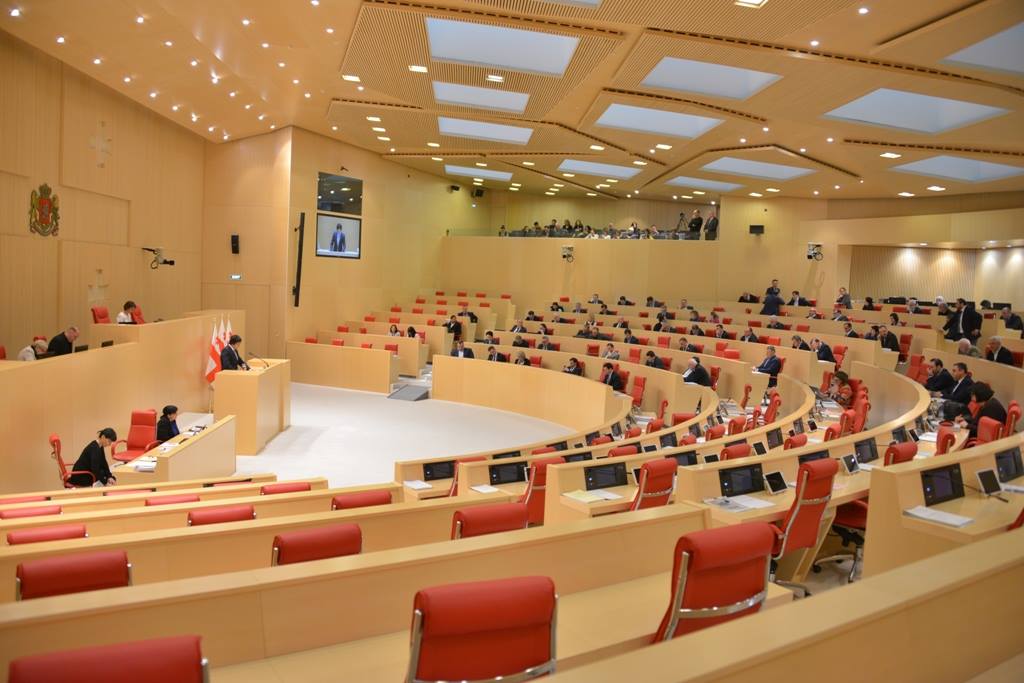| Constitutional Changes Passed on Final Reading |
| Civil Georgia, Tbilisi / 24 Mar.'18 / 00:24 |

Plenary sitting of the Parliament of Georgia, March 23, 2018. Photo: parliament.ge
The Parliament of Georgia passed yesterday with its third and final reading amendments to the new constitution, which were initiated for incorporating several Venice Commission-recommended changes to the original amendments.
According to the amendments, parties will be allowed to form election blocs for the next parliamentary election in 2020. Also, the so called bonus system, which entails transfer of votes of the parties that fail to cross the parliamentary threshold entirely to the winner, will be scrapped, and undistributed mandates will be proportionally distributed among those parties, which clear a 5% election threshold during the parliamentary polls.
The amendments also specify grounds for restricting freedom of faith, confession and conscience, as well as some Constitutional Court-related competencies and the provisions regulating access to public information.
The constitutional bill includes other changes as well, including to Article 5 and Article 27 of the new constitution, which define the principles of a social state, and of right to education and academic freedom.
Some minor technical and editorial changes have also been introduced to the new constitution.
Assessments
Speaking after the plenary sitting yesterday, Parliament Speaker Irakli Kobakhidze said “a difficult and long process” had come to an end; “as a result, the Georgian state and the society got a constitution that is based on best traditions of parliamentary democracy.”
“With this reform, we have replaced the previous pro-authoritarian constitution by democratic constitution, which, as indicated in the Venice Commission’s conclusion, is based on the principles of democracy, rule of law and human rights protection, and improves the country’s constitutional system,” he said.
Prime Minister Giorgi Kvirikashvili commented on the matter as well, stressing in his statement that the new constitution would ensure Georgia’s democratic development.
“From this day on, the country has a flawless Constitution which, on one hand, ensures stability and pluralism, and on the other hand, ensures against inadequate concentration of power in the hands of one force, hence eliminates the possibility of autocracy,” PM Kvirikashvili said.
Background
The Parliament of Georgia approved the new constitution on its third and final reading at its special sitting on September 26 with 117 lawmakers voting in favor and two against it. Opposition lawmakers boycotted the vote.
The ruling party lawmakers pledged to make additional modifications to the document in late September in an attempt to obtain the Venice Commission endorsement, but were unable to amend the draft constitution (content-related changes can only be introduced during the first and the second readings), and had to initiate a new round of the constitutional amendment process in early November.
Under the country’s current constitution, constitutional amendments have to be confirmed at two consecutive parliamentary sessions. Therefore, the third and final hearing for the constitutional bill was scheduled during the ongoing plenary session.
The new constitution will enter into force following the next presidential election in 2018.
